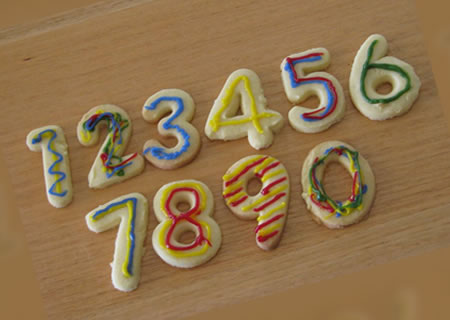Get tons of free content, like our Games to Play at Home packet, puzzles, lessons, and more!

Description
-
Author:
-
Posted:Fri, March 13, 2015, last modified October 2, 2019
-
Topics:
-
Grades:
-
Type:
-
Keywords:
About This Lesson
Topics: Greater than/less than, logic
Materials: Whiteboard or paper and pencil
Common Core: K.CC.C7, 1.NBT.B.3, MP1, MP3
Guess My Number is a quick, fun, and easy opening game to lead with a small group or the entire class. Students try to guess the number you’re thinking of in the fewest number of guesses possible.
Why We Love Guess My Number
It’s hard to think of a game more natural than Guess My Number. Kids can immediately start playing, and have a great time doing it. The game is also a perfect way to introduce the basics of logical thought and strategy, and let the game do the teaching with only minimal extra observations from the teacher. Surprisingly repayable and enjoyable, this is a great game to play early and often.
The Launch
As you write the numbers from 1 to 10 down on the board, tell your students that you are going to think of a number from 1 to 10, and they will try to guess it in the fewest number of guesses possible. After every guess, you will tell them whether your number is greater or less than their guess.
Example
Teacher: Who would like to make the first guess? [Students raise hands.
The teacher calls on different students for each guess.]
Student: 3.
Teacher: My number is not 3.
But my number is greater than 3.
[optional: write “My number >3”] Are there any numbers I can cross off my list?
Student: It’s not 3. [Teacher crosses off the 3]
Student: It’s not 2 or 1 either.
Teacher: Right.
Because my number is greater than 3, but those numbers are less than 3 [Teacher crosses off 1 and 2.]
Who has another guess?
Student: 9.
Teacher: My number is not 9, but my number is less than 9.
[optional: write “My number <9”.] Can I cross any more numbers off the list?
Student: The 9 and the 10.
Teacher: Because my number is less than 9, so it can’t be 9 or 10.
[Crosses them off. Looks at the board.] So the only options left are 4, 5, 6, 7, or 8.
Take a minute to think about what would be a good next number to guess.
Then tell someone sitting next to you what you would guess next, and why.
[Students pair and share.] Who has another guess?
Student: Is it 7?
Teacher: My number is not 7, but my number is less than 7 [optional: write “My number <7].
What numbers can I cross off?
Student: 7 and 8.
Teacher: Right. Because my number is less than 7, so it can’t be 7 or 8.
[crosses them off] So the only options are 4, 5, or 6.
Who has another guess?
Student: Is it 5?
Teacher: My number is not 5, but it is… greater than 5.
[Students hands shoot up.] Whoever thinks they know my number, say it together.
Students: 6!
Teacher: You got it! Now that took you [counts] 1, 2, 3, 4, 5 guesses.
Who thinks they could do it in fewer? [optional: play again.]
The Central Question:
What is the most effective strategy to guess the number fastest?
Tips for the Classroom
- Cheat! By which I mean, don’t actually choose your number ahead of time. It students guess 1, tell them your number is more than 1. Always make each guess give them the least amount of information possible, and deny them the lucky guess. Make them work for it, and they’ll be more invested in working smarter.
WRONG:
Student: Is it 8?
Teacher: It is! Lucky guess! You got it on the first try.
RIGHT:
Student: Is it 8?
Teacher: My number is not 8, but my number is less than 8. - You can slowly expand up to larger ranges of numbers as students are ready for them. Go up to 15, 20, 50, 100, and beyond as your students are ready. Kids love to see the game get harder, as long as it doesn’t get too hard too fast. And for the initial games, as long as you write all the numbers up on the board at the start, they can see what needs to happen.
- If kids make a bad guess, don’t try to steer them toward a good guess right away. But you can ask the students after you write the guesses down which guesses were most helpful, or whether they would make a different guess if they could take it back.
- Don’t play for too long at one time.
One or two games is usually enough to get the kids mentally alert and ready for whatever is coming next.
 back to FreeLessons
back to FreeLessons